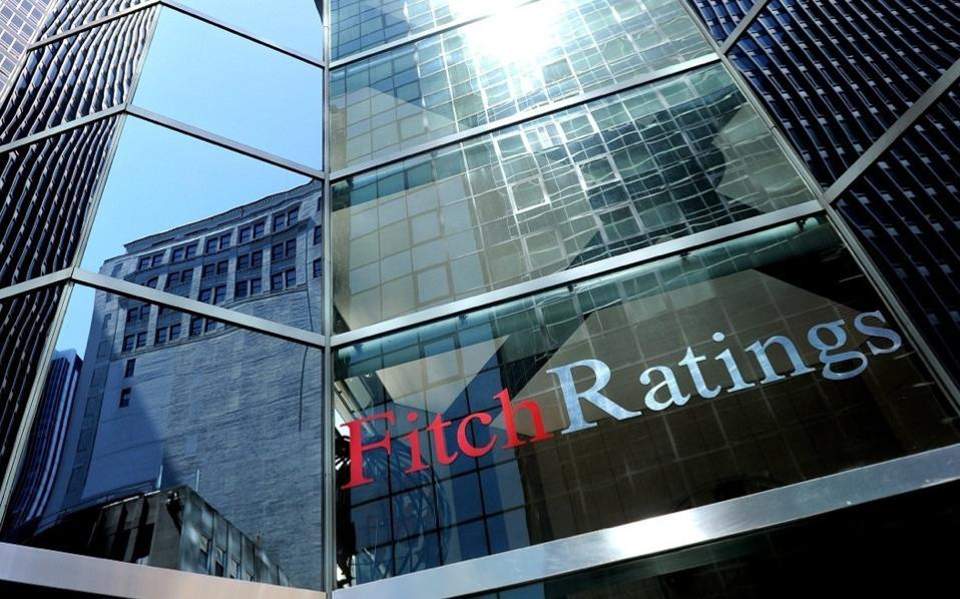Investment grade still possible next year

Despite the increased challenges, it remains possible for Greece to attain investment grade in 2023, analysts and economists estimate.
The distance from this milestone may be short, just one step, but the path is full of significant obstacles and uncertainties: Apart from the 2023 elections, the energy crisis is continuing, inflation is persisting, monetary policy tightening keeps weighing on borrowing costs, and estimates of a eurozone recession in 2023 are strengthening, making for a very difficult environment for upgrades.
At a time when agencies have started to appear cautious and put recession and primary deficit in the main scenario for Greece in 2023, is it possible for the country to regain investment grade? Kathimerini has spoken to rating agencies and economists, and the response was optimistic: The country still has a chance of achieving this milestone despite the challenges.
Fitch Ratings’ Head of Western Europe Sovereign Ratings, Michele Napolitano, says “the macro outlook for Europe has worsened and this will affect the Greek economy. 2023 will be a more difficult year for fiscal policy given the backdrop of slowing growth and higher government bond yields. The recent affirmation in early October of the positive outlook on Greece reflects our expectation of a decline in public sector indebtedness, in the context of still low average borrowing costs, and a degree of expected resilience of the Greek economy, despite the worsening of the economic outlook for the eurozone in recent months.”
He adds that “the energy crisis is entering a very delicate juncture. Evidence that the Greek economy proves resilient to the energy crisis (the second crisis in the space of two years) will be an important factor in our assessment. Macro resilience is likely to underpin an improvement in the public finances which would, in turn, increase our confidence that public debt will remain on a firm downward path. Continued progress on asset quality improvement by systemically important Greek banks is another factor that could contribute to a rating upgrade.”
For his part, Andrew Kenningham, Chief Economist at Capital Economics, responds that “it seems quite likely to me that ratings agencies will be more cautious about upgrades in the coming year or two in Europe (and perhaps elsewhere) simply because the economic backdrop has deteriorated. That said, I don’t think Greek public debt will be a major concern for investors because the government has a very large fiscal cushion, is following reasonably prudent fiscal policies and has the backing of the ECB.”
Greece’s course toward investment grade will not be derailed, estimates Allianz Research economist Maddalena Martini: “We expect a continued improvement of the fiscal situation (albeit less strong than suggested by the national authorities), which should help Greece to remain on a path towards reaching an investment grade credit rating over the medium term. We think fiscal dynamics will improve but remain more cautious compared to the Draft Government Budget for 2023.“
“Indeed, we expect economic growth to be slightly negative and public finances to remain impacted by the fiscal support to households and businesses to curb spiking energy prices (so far measures amount to 3.7% of GDP). The government balance should continue to improve in 2022 (-4.6% of GDP compared to government call at -4.1%) and 2023 (-3% of GDP vs. 2%). But we don’t see the challenged outlook to derail Greece’s return to investment grade,” she stresses.
“Greece has recently fully repaid the IMF loan two years in advance, sending positive signals to the markets and exiting the enhanced post-program surveillance. Also, the country is benefiting from the PEPP flexible re-investment policy, and current monetary policy tightening will impact a manageable proportion of public debt. Notably, most of the government debt remains in official hands and secured long maturity and favorable rates,” highlights the Allianz Research expert.
Dennis Shen, the Director of Scope Rating that was the first major credit rating agency to upgrade Greece’s credit rating to one level under investment grade, is also optimistic: “We revised up our expectations for growth in Greece to 5.9% for 2022 (revised up from 4.9% under our July forecasts), but revised down expectations for 2023 to 1.1%, from 2.1%. We agree with the government’s forecasts that Greece will avoid full-year economic contraction in 2023, but we believe its forecast of 2.1% growth to be optimistic at this stage.”
He goes on to forecast “a primary balance being reached next year, but do not anticipate a primary surplus of 0.7% of GDP as per government forecasts. For us, more important in our ratings decision is not whether Greece is in recession next year or the precise level of the primary balance but rather the long-run trajectory of debt dynamics and the long-run degree of European institutional support for Greece.”
“We anticipate Greece’s headline fiscal deficit will decline below the 3% of GDP Maastricht criterion by next year and see debt falling to 146.5% of GDP by 2027, supported by higher inflation for longer and Greece’s constructive debt structure, with low average interest costs of the aggregate debt portfolio. However, the rise of 10-year borrowing rates to above 5%, questions around the efficacy of the ECB’s Transmission Protection Instrument in assuring market confidence, and next year’s elections do present sources of uncertainty on the horizon,” warns Dennis Shen.





